How to find dy/dx by implicit differentiation given that e^(x^2y) = x yHere's the 4 simple steps we will take in order to find dy/dx from the given equatiFind \frac{dx}{dy} for x^3 y y = x Calculating Higher Order Derivatives Differentiating functions doesn't have to stop with the first or even second derivative Find dy/dx (x) 1/2 (y) 1/2 = (a) 1/2 Mention each and every step If y = tan 1 a/x log (xa/xa) 1/2 , prove that dy/dx = 2a 3 /(x 4 – a 4 ) Mention each and every step Queries asked on Sunday & after 7pm from Monday to Saturday will be answered after 12pm the next working day
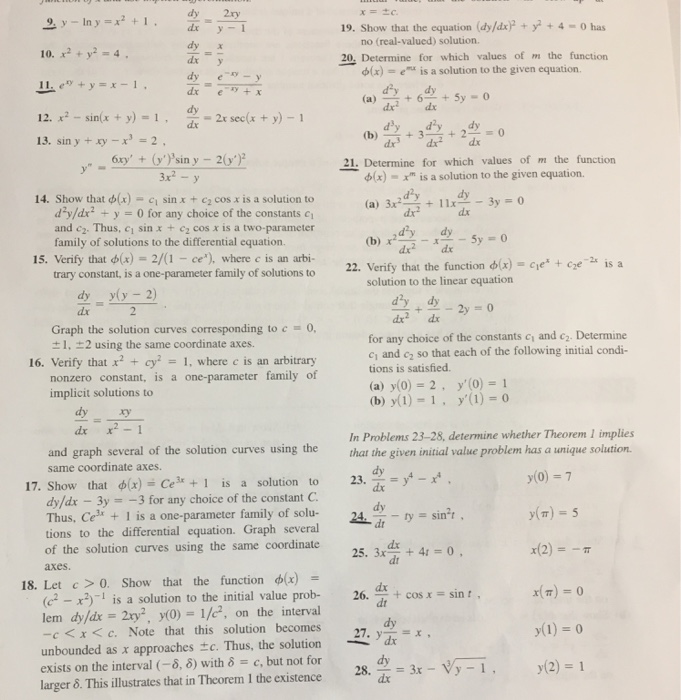
Y Ln Y X 2 1 Dy Dx 2xy Y 1 X 2 Y 2 4 Chegg Com
If xy=e^(x-y) then find (dy)/(dx)
If xy=e^(x-y) then find (dy)/(dx)-Therefore, for given y = tan x y=\tan x y = tan x We have d y = ( tan x) ′ d x dy= (\tan x)'\,dx d y = ( tan x) ′ d x As we know from the Table of Derivatives of Trigonometric Functions ( tan x) ′ = sec 2 x (\tan x)'=\sec ^2x ( tan x) ′ = sec 2 x Therefore, we have Given that dy/dx = e2y and y = 0 when x = 5 Find the value of x when y = 3 asked in Class XII Maths by rahul152 (2,8 points)



The Solution Of Dy Dx Y E X Y 0 0 Is Studyrankersonline
Find dy/dx y=e^x y = ex y = e x Differentiate both sides of the equation d dx (y) = d dx (ex) d d x ( y) = d d x ( e x) The derivative of y y with respect to x x is y' y ′ y' y ′ Differentiate using the Exponential Rule which states that d dx ax d d x a x is axln(a) a x ln ( a) where a a = e e ex e x4) We want to find dy/dx, which is on the LHS To get this dy/dx on its own we can multiply both sides by y So we get dy/dx = y log(2) 5) To finish this question we need to sub in for y and then we have an answer for dy/dx Recall y=2^x (from our original question) So we get dy/dx = (2^x)(log(2)) => our final solutionIf A is a matrix of order m × n and B is a matrix such that AB ′ and B ′ A are both defined, the order of the matrix B is Matrices 2 The value of ∫ ex ( 1 x) dx cos2 ( ex x) is equal to Integrals 3 If xyz are not equal and ≠ 0, ≠ 1 the value of logx logy logz log2x log2y log2z log3x log3y log3z is
If x y=e^(xy) , find (dy)/(dx) Updated On To keep watching this video solution for FREE, Download our App Join the 2 Crores Student community now! (dy)/(dx)=(e^x(e^y1))/(e^y(1e^x)) Differentiating e^xe^y=e^(xy) e^xe^y(dy)/(dx)=e^(xy)(1(dy)/(dx)) or e^xe^y(dy)/(dx)=e^(xy)e^(xy)(dy)/(dx) or e^y(dy)/(dx)e^(xy)(dy)/(dx)=e^(xy)e^x or (e^ye^(xy))(dy)/(dx)=(e^(xy)e^x) or (dy)/(dx)=(e^(xy)e^x)/(e^ye^(xy))=(e^x(e^y1))/(e^y(1e^x)) Calculate dy/dx if Ln (x y) = ex/y A e^x/y xy e^x/y y^2 y^2 _____ e^x/y xy Get the answers you need, now!
Given the equation x y= xy We need to find dy/dx We will use implicit differentiation ==> (xy)' = (xy)' ==> x' y' = (x)y' x' (y) ==> 1 y' = xy' y Now we willThus, we have obtained the following linear equation with respect to the derivative $$$ 3 x^{2} 3 y^{2} \frac{dy}{dx} = 2 x \frac{dy}{dx} 2 y $$$ Solving it, we obtain that $$$ \frac{dy}{dx} = \frac{3 x^{2} 2 y}{2 x 3 y^{2}} $$$If x^ (y)=e^ (xy), prove that (dy)/ (dx)= (logx)/ ( (1logx)^ (2))
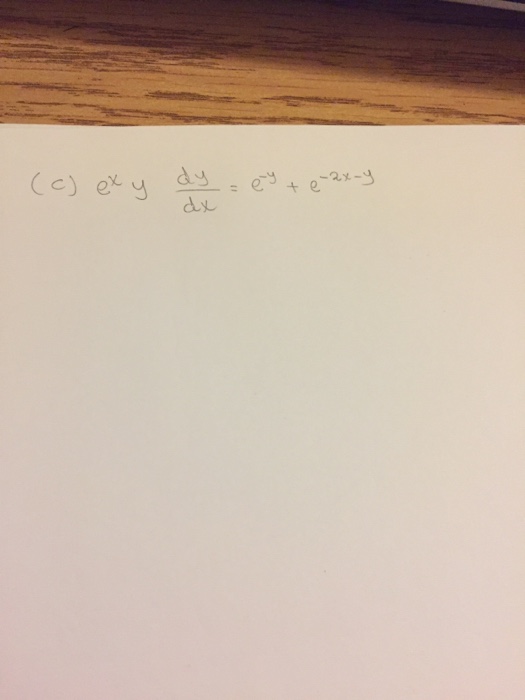



E X Y Dy Dx E Y E 2x Y Chegg Com
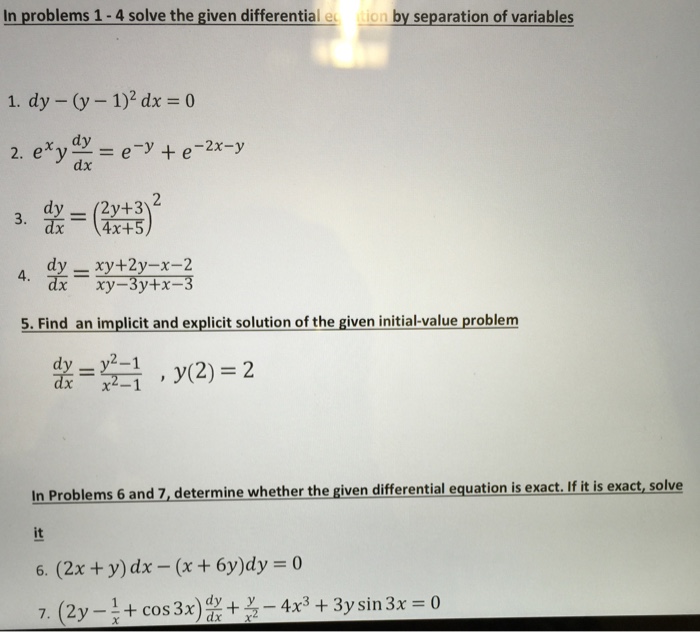



Solve The Given Differentia By Separation Of Chegg Com
Calculus Find dy/dx y=xe^x y = xex y = x e x Differentiate both sides of the equation d dx (y) = d dx (xex) d d x ( y) = d d x ( x e x) The derivative of y y with respect to x x is y' y ′ y' y ′ Differentiate the right side of the equation Tap for more steps Find y 0 so that the integral curve for dy/dx=xy y(4)=y 0 is a straight line You must justify your answer, which will require you to apply algebraic reasoning to the problem I know the answer is 3 I also know this differential equation looks simple, but I can't get the starting equation separatedIn Introduction to Derivatives (please read it first!) we looked at how to do a derivative using differences and limits Here we look at doing the same thing but using the "dy/dx" notation (also called Leibniz's notation) instead of limits We start by calling the function "y" y = f(x) 1 Add Δx When x increases by Δx, then y increases by Δy




X Y E X Y So Prove That Dy Dx Logx 1 Logx 2 Youtube




If Y E X E X X E E X E X X E Find Dydx
Implicit differentiation can help us solve inverse functions The general pattern is Start with the inverse equation in explicit form Example y = sin −1 (x) Rewrite it in noninverse mode Example x = sin (y) Differentiate this function with respect to x on both sides Solve for dy/dx Please find below the solution to the asked query We have y = x e x 2 Taking log on both sides, we get, ln y = ln x e x 2 ⇒ ln y = e x 2 ln x As ln m n = n ln m Differentiating both sides with respect to x and employing product rule, we get, 1 y dy dx = e x 2 d dx ln x ln x d dx e x 2 ⇒ 1 y dy dx = e x 2 x ln x e xSolution For Find (dy)/(dx)of the functions given by x y=e^((xy)) Connecting you to a tutor in 60 seconds Get answers to your doubts
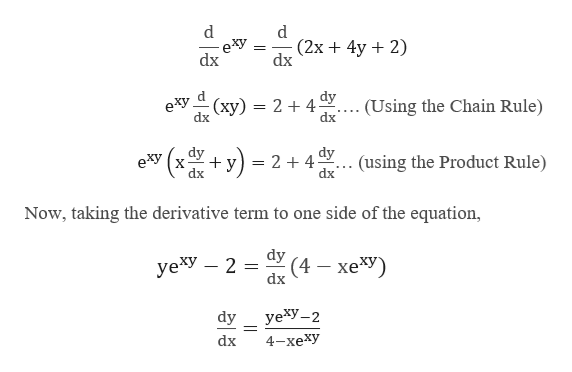



Answered Let Exy 2x 4y 2 Use Implicit Bartleby




Implicit Differentiation Advanced Example Video Khan Academy
Bonnie and Clyde enters into a partnership agreement in which Bonnie is to have 55% interest in the partnership and 35% in the profits and losses, whi Example 33 Find 𝑑𝑦/𝑑𝑥 , if 𝑦^𝑥𝑥^𝑦𝑥^𝑥=𝑎^𝑏 Let u = 𝑦𝑥, v = 𝑥𝑦 & w = 𝑥^𝑥 Now, 𝒖 𝒗 𝒘 = 𝒂^𝒃Find dy/dx if y = e^x^x Maharashtra State Board HSC Commerce 12th Board Exam Question Papers 195 Textbook Solutions Online Tests 99 Important Solutions 2470 Question Bank Solutions Concept Notes & Videos 269 Time Tables 23 Syllabus Advertisement Remove all




Solve Dy Dx E X Y X 2e Y Youtube
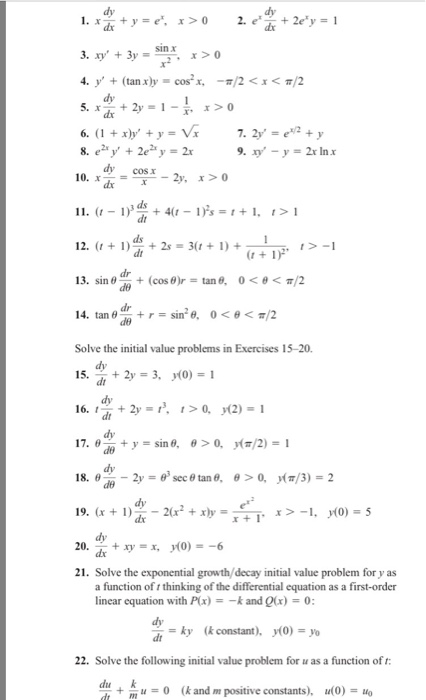



X Dy Dx Y E X X 0 E Xdy Dx 2e Xy 1 Xy Chegg Com
1answer If y= e^(acos^1) x, 1 ≤ x ≤ 1, show that (1x^2) d^2y/dx^2 x dy/dx a^2 y =0 askedin Mathematicsby sforrest072(128kpoints) continuity and differntiability class12 Welcome to Sarthaks eConnect A unique platform where students can interact with teachers/experts/students to get solutions to their queriesY = d d x ( sin x × log e x) In this differentiation problem, the variable y represents a function in x Hence, it can be differentiated with respect to x and do not think that y is a constant Therefore, the function y can be differentiated by the derivative rule of logarithms 1 y × d y d x = d d x ( sinDy/dx = a / (x (x 2 a 2) 1/2) Sponsored Links Related Topics Mathematics Mathematical rules and laws numbers, areas, volumes, exponents, trigonometric functions and more ;




The Solution Of The Differential Equation Dy Dx E X Y X 2e Y




Differential Equations Solved Examples 17
Ch 35 Find dy/dx by implicit differentiation 19 Ch 35 Find dy/dx by implicit differentiation Ch 35 If f(x) x2 f(x)3 = 10 and f(1) = 2, find f(1) Ch 35 If g(x) x sin g(x) = x2, find g(0) Ch 35 Regard y as the independent variable and x as theExample 3 Find dy/dx if y 4 xy = 10 Solving for y in terms of x is difficult if not impossible in this problem However, by implicit differentiation, we obtain The following example illustrates how implicit functions can be used to justify the fact that dx n /dx = nx n1 i is valid when n is a rational number Example 4 Let f(x) = x 2/3 1find dy/dx when sinh 3y=cos 2 x 2calculate dy/dx if Ln(xy)=e^x/y 3calculate dy/dx when xy^3y=3x 4calculate Answered by a verified Math Tutor or Teacher We use cookies to give you the best possible experience on our website




Answered Px Y E Dt Xy 3 Dy Dx X Y 0 0 Bartleby




The Solution Of Differential Equation Dy Dx E X Y X 2
`(de^x)/dx(de^y)/dx=(de(xy))/dx` `e^x e^y dy/dx=e^(xy) (1dy/dx)` `(e^y e^(x – y))dy/dx=e^(xy)e^x` `dy/dx=((e^(xy)e^x)/(e^(xye^y)))=(e^xe^ye^x)/(e^xe^ye^y)`Start your free trial In partnership with You are being redirected to Course Hero I want to submit the same problem to Course Hero CancelOur online expert tutors can answer this problem Get stepbystep solutions from expert tutors as fast as 1530 minutes Your first 5 questions are on us!




Ex 5 5 15 Find Dy Dx Of Xy E X Y Class 12 Ex 5 5




Given X Y E X Y Find Dfrac Dy Dx Mathematics Stack Exchange
Find dy/dx of y = a^x To differentiate a function of the form y=a^x you need to use a neat little trick to rewrite a^x in the form of something you already know how to differentiate Using the fact that e^ln(x) is equal to x, y = a^x can be written as e^(ln(a)^x) Using log rules ln(a)^x can be written as xlna so now y can now be expressed as y Explanation dy dx = x y ydy = xdx by exploiting the notation (separation) ∫ydy = ∫xdx further exploiting the notation 1 2 y2 = 1 2x2 d y2 = x2 2d x2 −y2 = − 2d x2 −y2 = c where c = −2d Depending on whether c is positive, negative or zero you get a hyperbola open to the x axis, open to the y =axis, or a pair of straight lines through the originMathx^y=e^{xy}/math math\ln(x^y)=xy/math mathy\ln(x)=xy/math mathy(\ln(x)1)=x/math mathy=\dfrac{x}{\ln(x)1}/math math\dfrac{\mathrm dy




Worked Example Implicit Differentiation Video Khan Academy
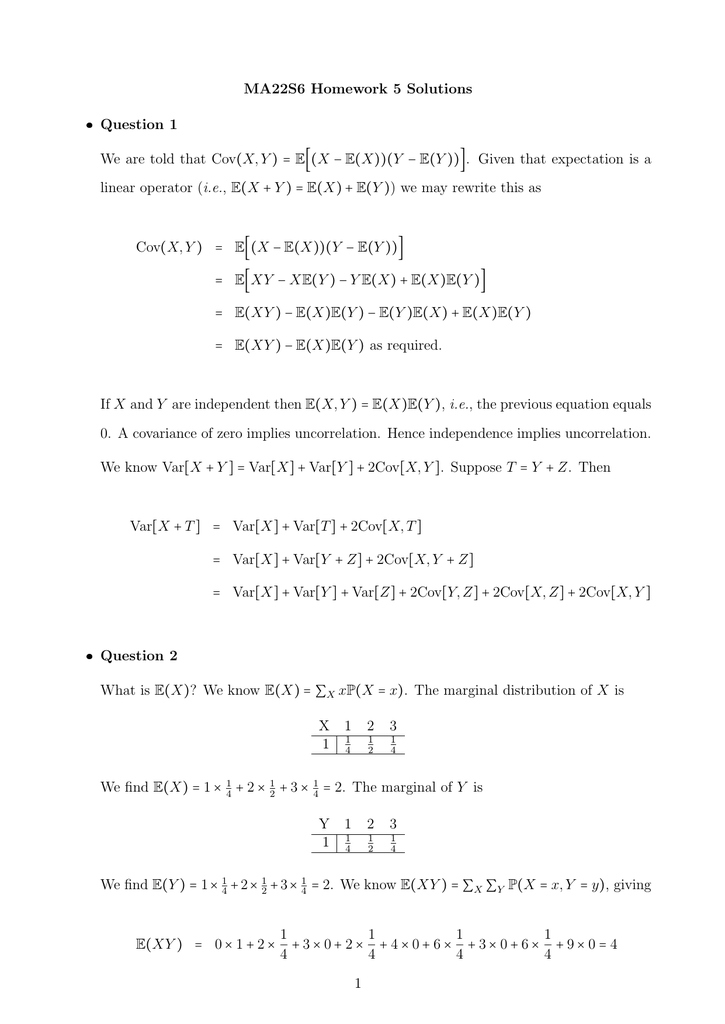



Ma22s6 Homework 5 Solutions ˆ Question 1
Find dy/dx by implicit differentiation tan (xy) = y/ (2x^2) 1 Educator answer Math Latest answer posted at 924 AM If x^y=e^ (xy), show that dy/dx=logx/ {log (xe)}^2Watch Video in App This browser does not support the video element 100 000 Answer



If X Y E X Y Show That Dy Dx Logx Log Xe 2 Sarthaks Econnect Largest Online Education Community
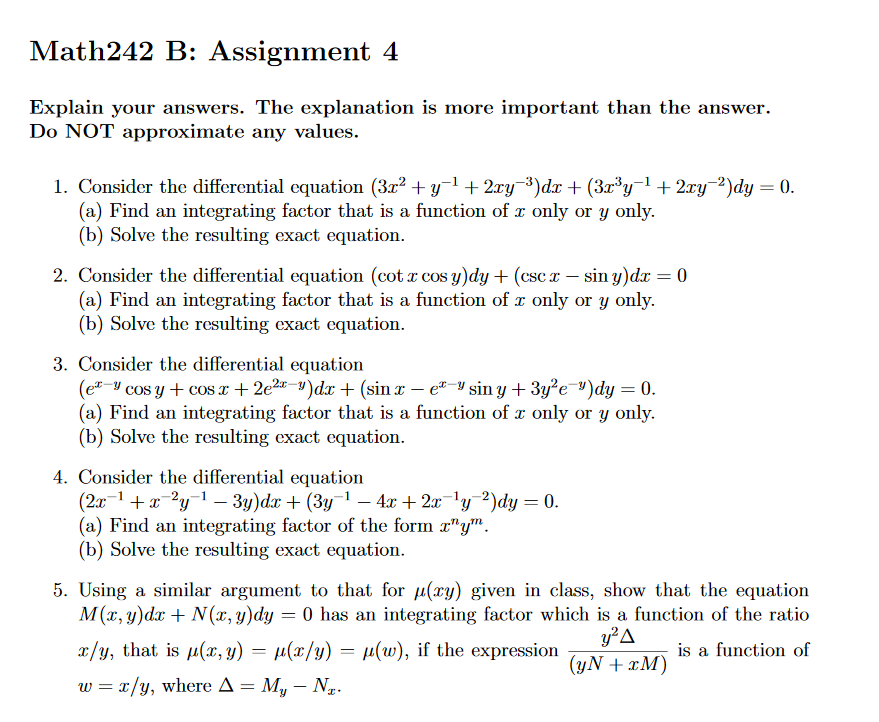



Q 3 Find The Integrating Factor And Solve The Exact Solution Consider The Differential Equation E X Y Cosy Cosx 2e 2x Y Dx Sinx E X Y Siny 3y 2e Y Dy Q 5 Prove Socratic
Solve your math problems using our free math solver with stepbystep solutions Our math solver supports basic math, prealgebra, algebra, trigonometry, calculus and moreClick here👆to get an answer to your question ️ Find dy/dx of xy = e^x y Join / Login > 12th > Maths > Continuity and Differentiability > Logarithmic DifferentiationImplicit\derivative\\frac{dx}{dy},\e^{xy}=e^{4x}e^{5y} implicitderivativecalculator en Related Symbolab blog posts High School Math Solutions – Derivative Calculator, Trigonometric Functions In the previous posts we covered the basic algebraic derivative rules (click here to see previous post) But how




Find Dy Dx In Each Of The Following E X Y Log X Y




If X Y E X Y Proove That Dy Dx Log X Log Xe 2 Maths Continuity And Differentiability Meritnation Com
Solution y = e x log x Use product rule dy/dx = e x log x e x (1/x) = e x (log x 1/x) Hence option (2) is the answerDy dx = e2t cos(2t) B e2t cos(2t) C sin(2t) 2e2t D cos(2t) 2e2t E cos(2t) e2t 10For what values of t does the curve given by the parametric equations x = t3 t2 1 and y = t4 2t2 8t have a vertical tangent line?Stack Exchange network consists of 177 Q&A communities including Stack Overflow, the largest, most trusted online community for developers to learn, share their knowledge, and build their careers Visit Stack Exchange
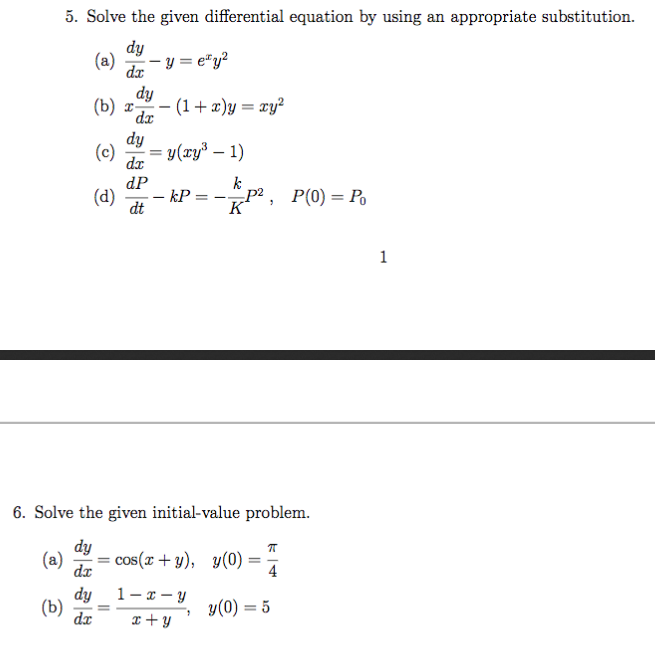



Solve The Given Differential Equation By Using An Chegg Com
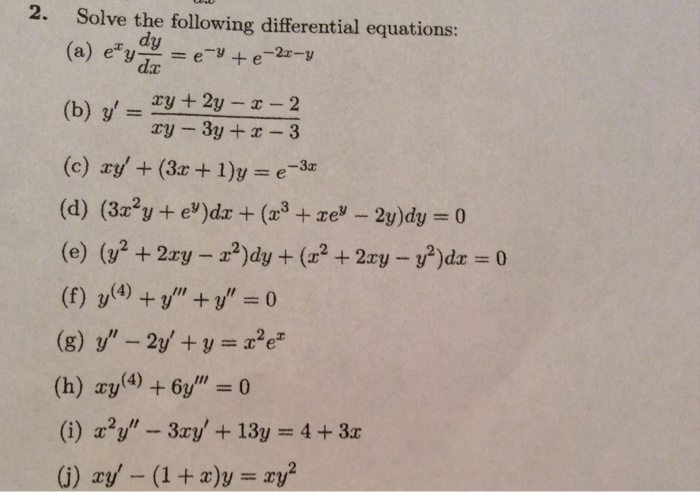



Solve The Following Differential Equation E Xy Dy Dx Chegg Com
Ex 55, 15 Find 𝑑𝑦/𝑑𝑥 of the functions in, 𝑥𝑦= 𝑒^((𝑥 −𝑦))Given 𝑥𝑦= 𝑒^((𝑥 −𝑦)) Taking log both sides log (𝑥𝑦) = log 𝑒^((𝑥 −𝑦)) log (𝑥𝑦) = (𝑥 −𝑦) log 𝑒 log 𝑥log𝑦 = (𝑥 −𝑦) (1) log 𝑥log𝑦 = (𝑥 −𝑦)(As 𝑙𝑜𝑔(𝑎^𝑏 )=𝑏 𝑙𝑜𝑔𝑎)("As " 𝑙𝑜𝑔𝑒=1Answer to y = e^{\\tanh x} i Find \\frac{dy}{dx} ii Find \\frac{d^2y}{dx^2} By signing up, you'll get thousands of stepbystep solutions to yourA0 only B1 only C0 and 2 3 only D0, 2 3, and 1 ENo value Page 5 of 10 MA 114 Exam 3 Solutions Fall 16
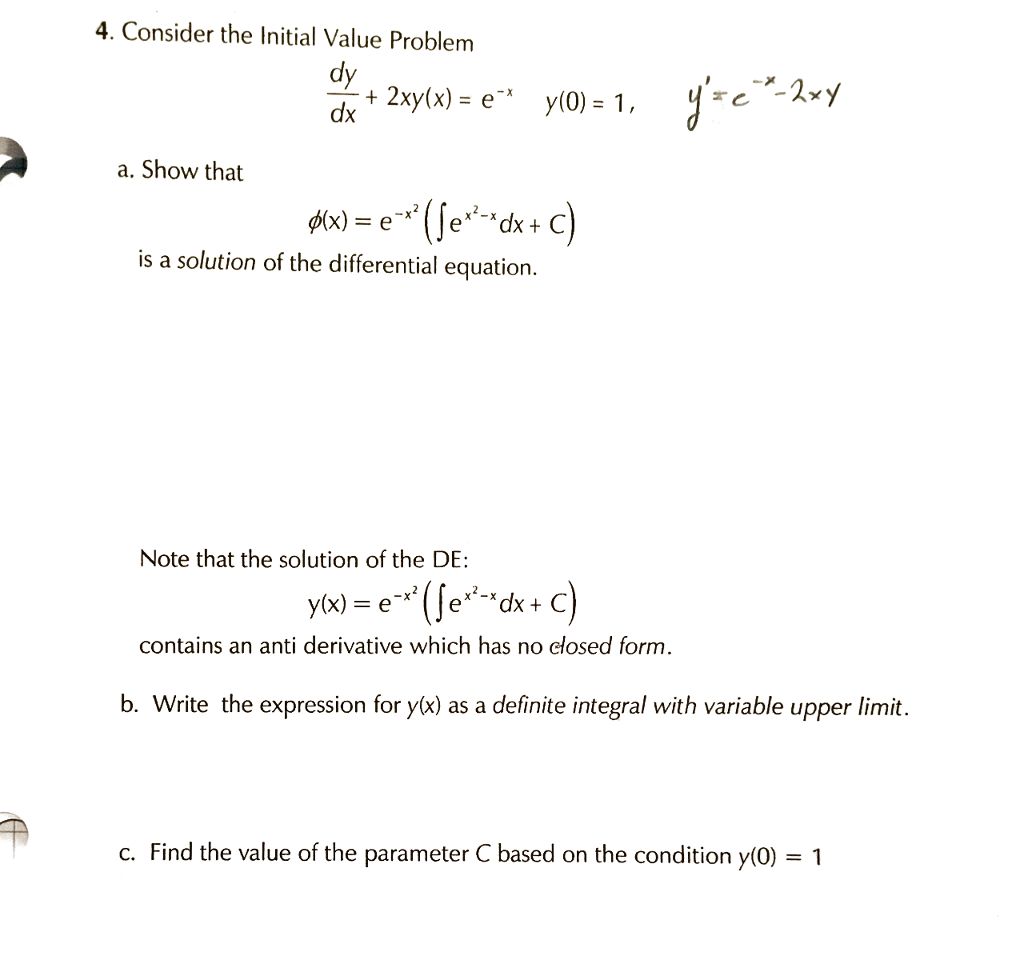



Consider The Initial Value Problem Dy Dx 2xy X Chegg Com
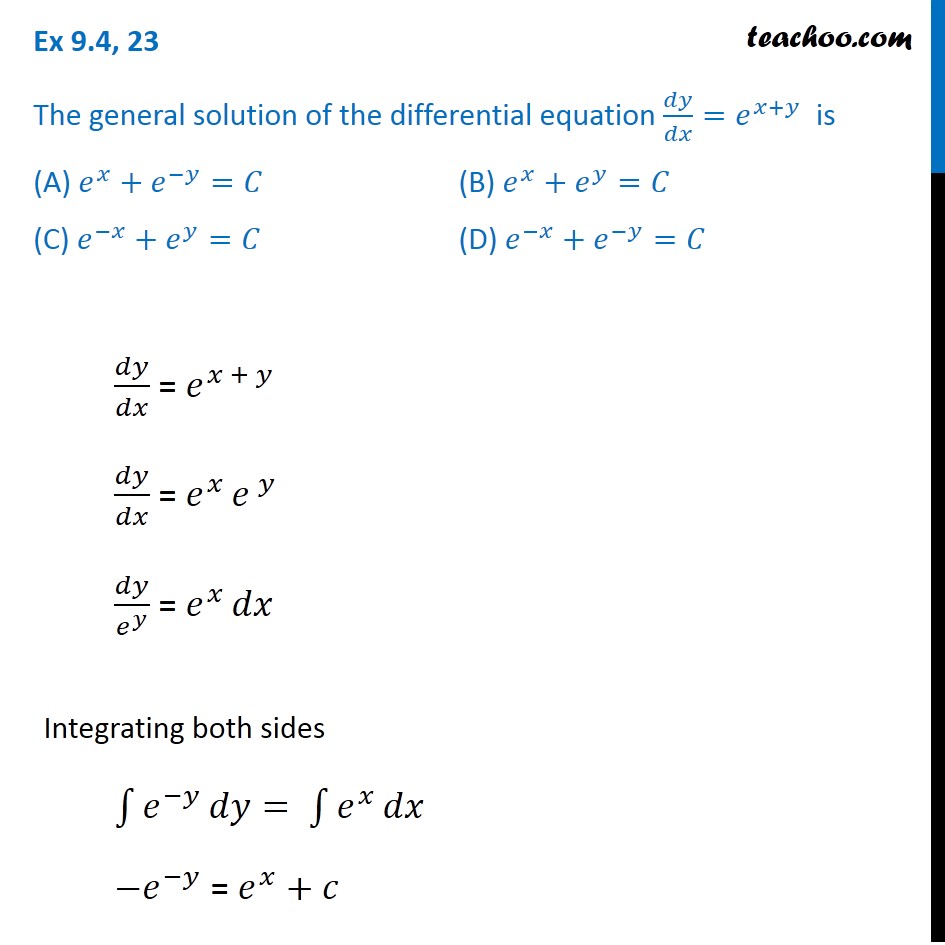



Ex 9 4 23 General Solution Of Dy Dx E X Y Is A E X E Y C
We havex = eyey⋯to∞It can be written as,x = eyxTaking log on both the sideslogx= (yx)loge = yx∴ y = logx−xBy differentiating wr to x, we get∴ dxdy = x1 −1= x1−xRelated Documents Complex Numbers Complex numbers are used in alternating current theory and in mechanical vector analysis;Till infinite Find dy/dx Please give the solutionWrite in the form y=x^y since x^x^x^x is till infinite, we can consider it to be y, then take l Book a Trial With Our Experts ×




E Xy 4xy 4 Find Dy Dx Please Hurry Up Brainly In




How Do You Differentiate E Xy Use Implicit Differentiation Youtube




X Y E X Y Prove That Dy Dx X Log A Y X Log X Brainly In




The Solution Of The Differential Equation Dy Dx 1 E X Y I




How To Find Dy Dx Of E Xy X 2 Y 2 1 Youtube
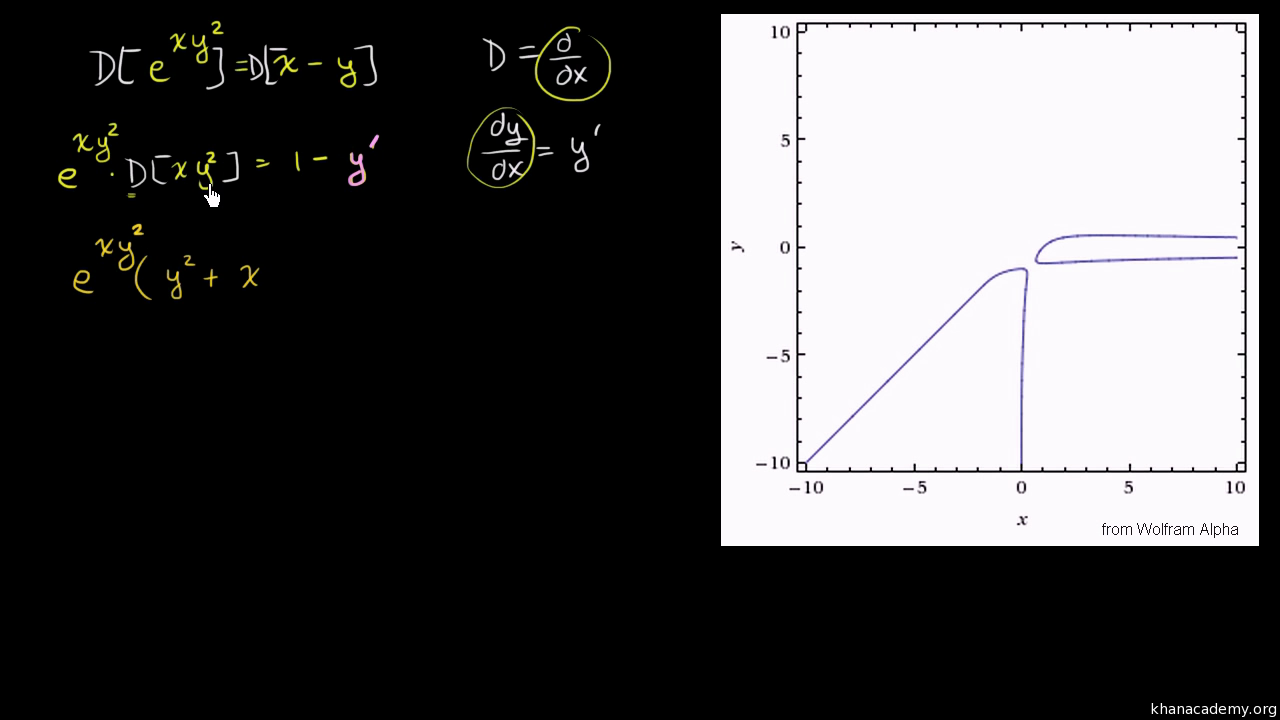



Implicit Differentiation Advanced Example Video Khan Academy




If Xy Ex Y Show That Dy Dx Logx Log Xe 2 Maths Continuity And Differentiability Meritnation Com




Ex 5 5 15 Find Dy Dx Of Xy E X Y Class 12 Ex 5 5
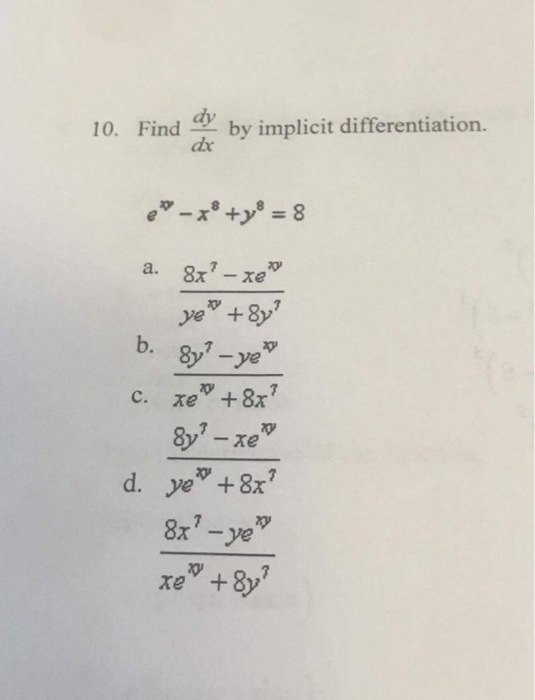



Find Dy Dx By Implicit Differentiation E Xy X 8 Chegg Com
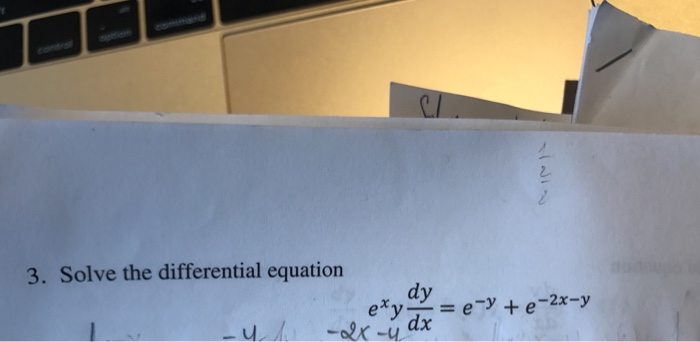



Solve The Differential Equation E X Y Dy Dx E Y Chegg Com




Solve Dy Dx E X Y Maths Differential Equations Meritnation Com




If X Y E X Y Then Show That Dy Dx Logx 1 Logx 2 Youtube



Www Tau Ac Il Levant Ode Solution 6 Pdf



If Xy E X Y Then Show That Dy Dx Y X 1 X Y 1 Sarthaks Econnect Largest Online Education Community



The Solution Of Dy Dx Y E X Y 0 0 Is Studyrankersonline



If Xy E X Y Then Prove That Dy Dx Log X 1 Log X 2 Sarthaks Econnect Largest Online Education Community
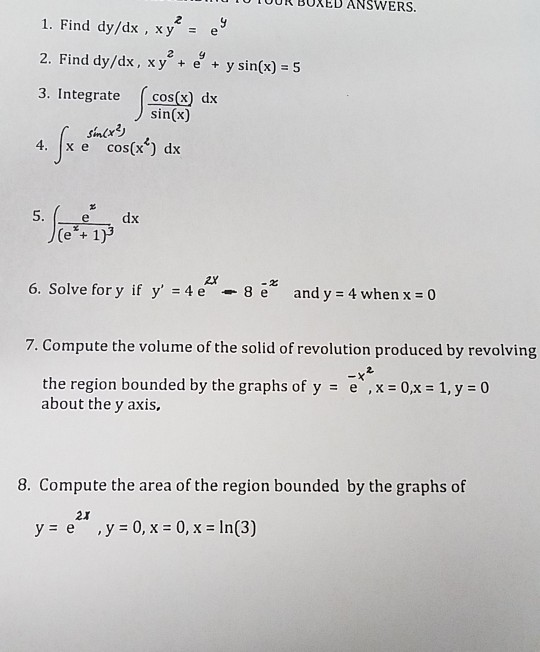



Utour Bured Answers 1 Find Dy Dx Xy E 2 Find Chegg Com




Find Dy Dx When Log Xy E X Y 2 Youtube
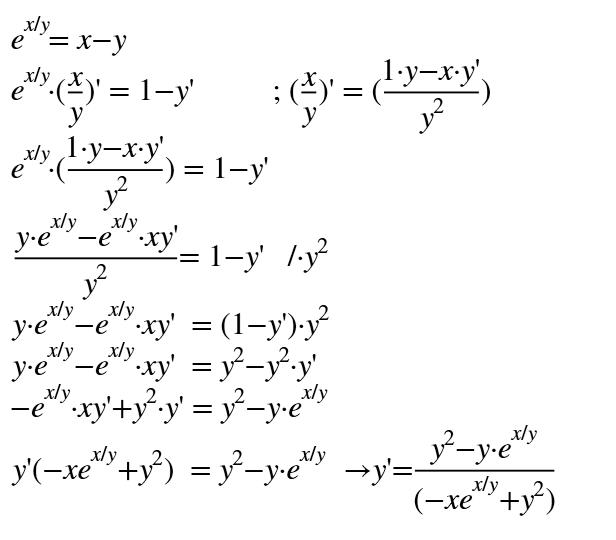



Find Dy Dx By Implicit Differentiation E X Y X Y Homework Help And Answers Slader




X Y E X Y Prove That Dy Dx Logx 1 Logx 2 Brainly In



How To Differentiate Xy E X Y Quora



Q Tbn And9gcq69xqaiwgxy95 44f5sqsm2pnlgxvor Roue6xadfczqpkv4qx Usqp Cau



How To Find Dy Dx Of E X E Y E X Y Quora




If E X Y Cos X Y Then Dy Dx
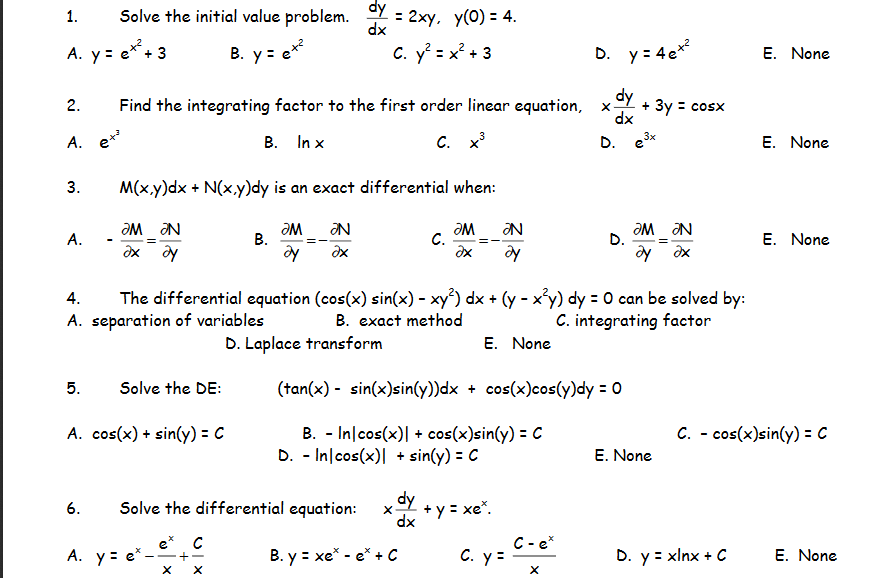



Solve The Initial Value Problem Dy Dx 2xy Y 0 Chegg Com




Y Ln Y X 2 1 Dy Dx 2xy Y 1 X 2 Y 2 4 Chegg Com




Find Dy Dx Of Function Xy E X Y Mathematics Shaalaa Com




Find Dy Dx If E X Y Cos X Y Brainly In



Http Www2 Johnabbott Qc Ca Math Gr Cal C1ns C1 Impdf Pdf
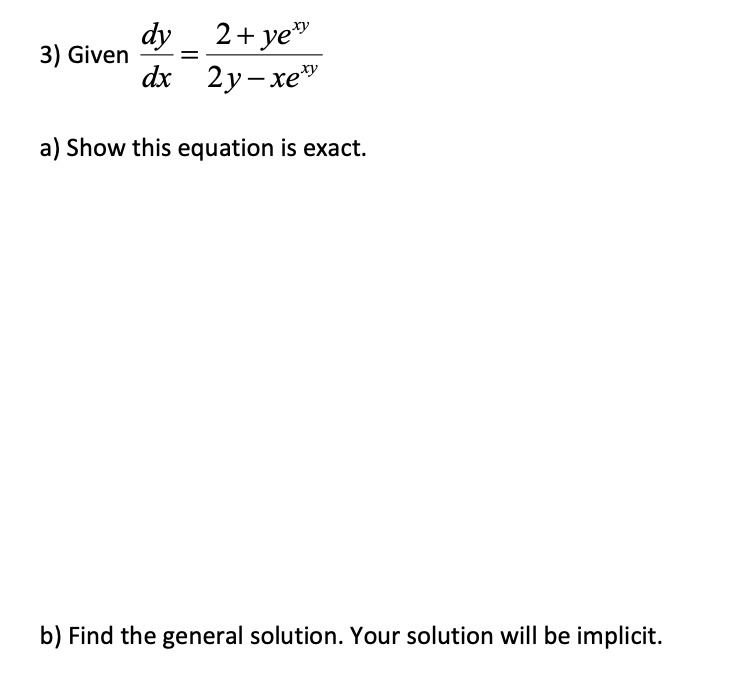



Given Dy Dx 2 Ye Xy 2y Xe Xy A Show This Chegg Com
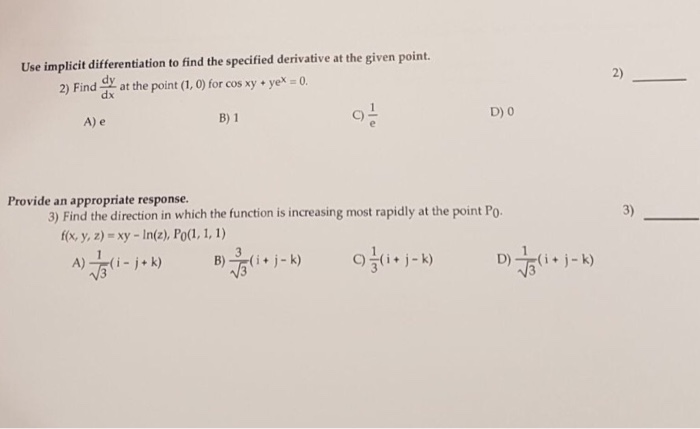



Use Implicit Differentiation To Find The Specified Chegg Com
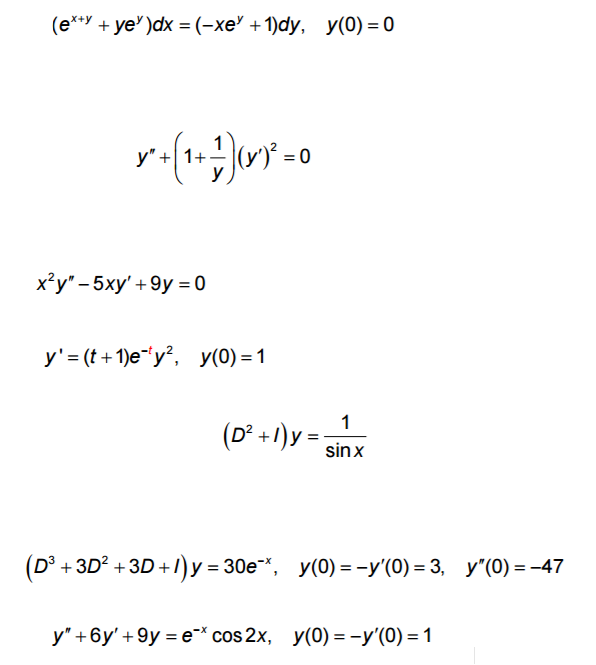



E X Y Ye Y Dx Xe Y 1 Dy Y 0 0 Y 1 Chegg Com
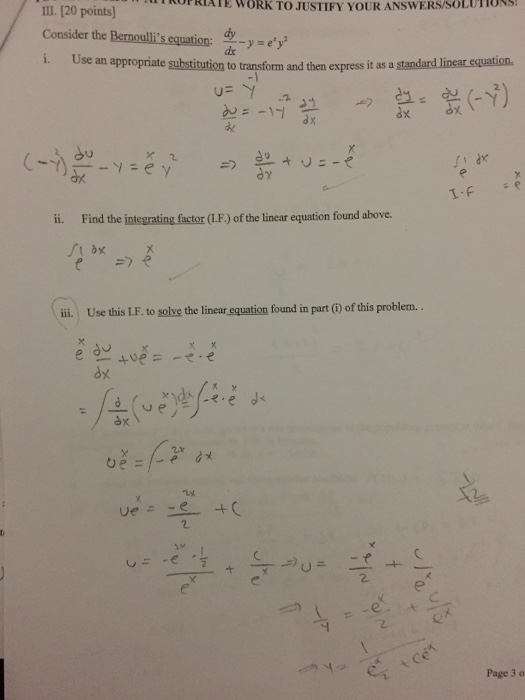



Consider The Bernoulli S Equation Dy Dx Y E X Chegg Com




Differential Calculus If E X Y X Y Show That Dy Dx Y 1 X X Y 1 Please Help Out With Steps Xd Brainly In




If X Y E X Y Prove That Dy Dx Logx 1 Logx 2




Class 12 Differentiation If Xy E X Y Find Dy Dx Youtube




If X Y E X Y What Is Dy Dx Quora




If X Y E X Y Prove That Dy Dx Logx 1 Logx 2




If X Y E X Y Then Find Dy Dx Maths Meritnation Com
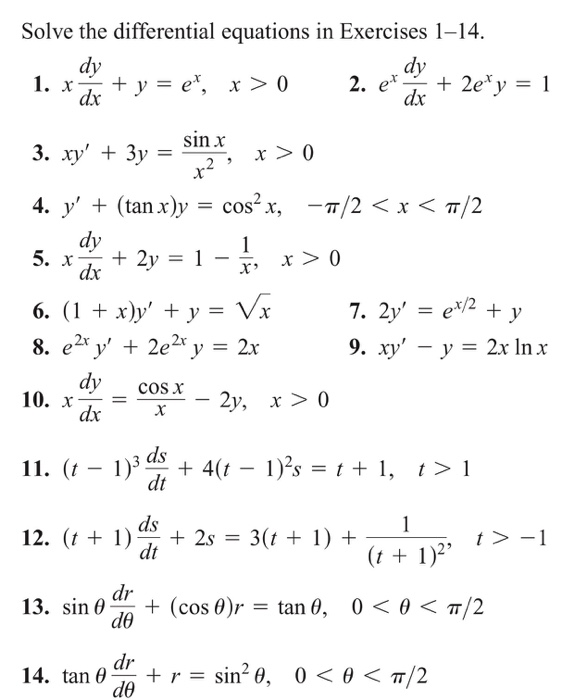



Solve The Differential Equations In Exercises 1 14 Chegg Com



How To Solve Math E X Y Ye Y Dx Xe Y 1 Dy 0 Math Quora



1
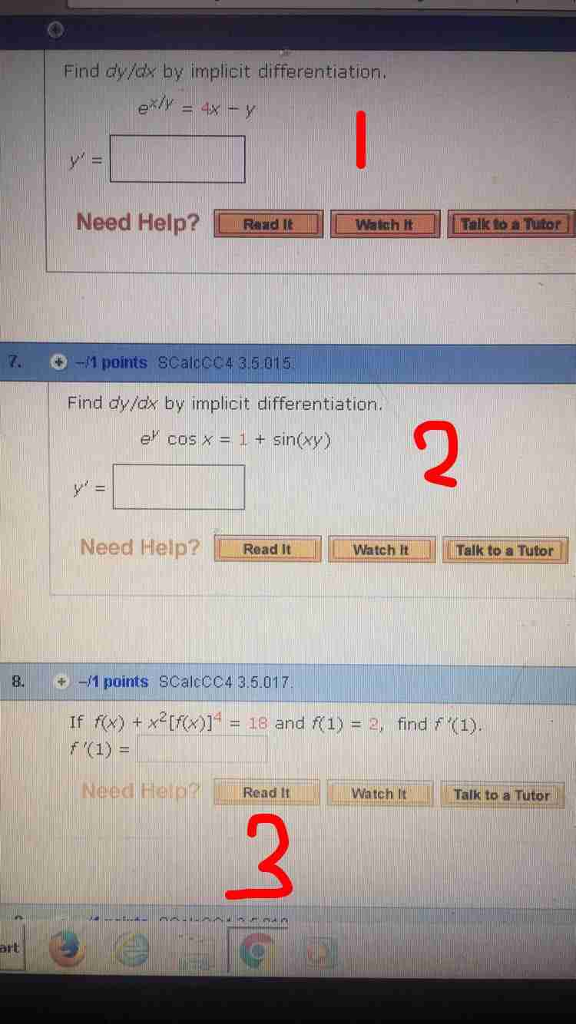



Find Dy Dx By Implicit Differentiation E X Y 4x Chegg Com




X 2 Y 2 Xy Find Dy Dx Novocom Top



1




Ex 9 5 10 Show Homogeneous 1 Ex Y Dx E X Y 1 X Y




If X Y E X Y Then Let S Prove Dy Dx Logx Log Ex 2 Brainly In



What Is The Solution Of The Differential Equation Dy Dx 1 E X Y Quora
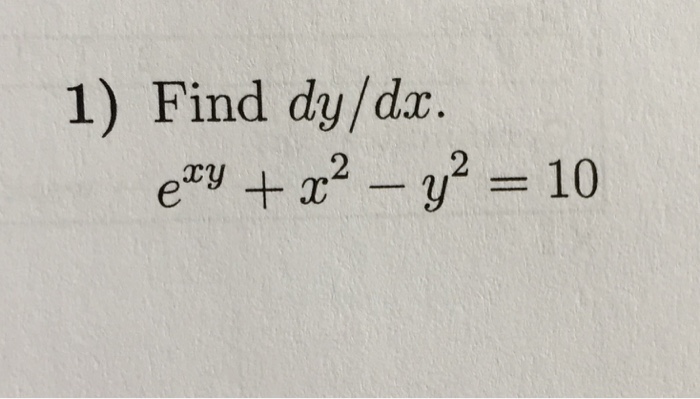



Find Dy Dx E Xy X 2 Y 2 10 Chegg Com



What Is Dy Dx If E Xy 4xy 0 Quora
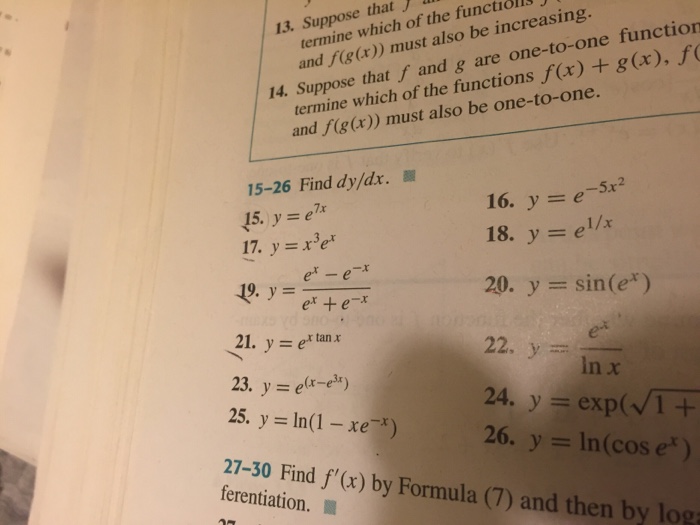



Find Dy Dx Y E 7x Y E 5x 2 Y X 3e X Y Chegg Com




Ye X Ydx Xe X Y Y 2 Dy Maths Questions




Solve Dy Dx E X Y E X E Y Dot Youtube
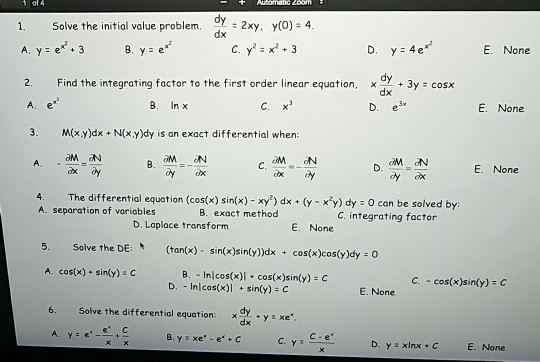



Solve The Initial Value Problem Dy Dx 2 Xy Y 0 Chegg Com




If X Y E X Y Prove That Dy Dx Logx 1 Logx 2



What Is The Solution Of This Differential Equation X 1 Dy Dx Y E 3x X 1 2 Quora




If X Y E X Y Find Dy Dx




If X Y E X Y Then Dy Dx Is




1 E Xy Xe Xy Dx Xe X 2 Dy 0 Exact Differential Equation Shorter Solution Youtube




Find Dy Dx When Log Xy E X Y 2




Xy Dy Dx Y 3e X 2 Youtube



If X Y E X Y What Is Dy Dx Quora



The Form Of The Exact Solution To 2 Dy Dx 3y E X Y0 5 Is A Ae 15x Be X C Ae 15x Course Hero




If Xy Xe Y Ye X X 2 Find Dy Dx Maths Continuity And Differentiability Meritnation Com



Http Www Utdallas Edu Efrom Solhw Pdf



If Ex Ey Ex Y Then Dy Dx Quora




If E X Y Xy Then Dy Dx



What Is The Solution Of The Differential Equation Dy Dx 1 E X Y Quora




The Solution Of The Differential Equation Dy Dx E X Y X 2e Y Is Youtube




If E X Y Log X Y Then Dy Dx Youtube



If Yx Ey X Prove That Dy Dx 1 Log Y 2 Log Y Studyrankersonline
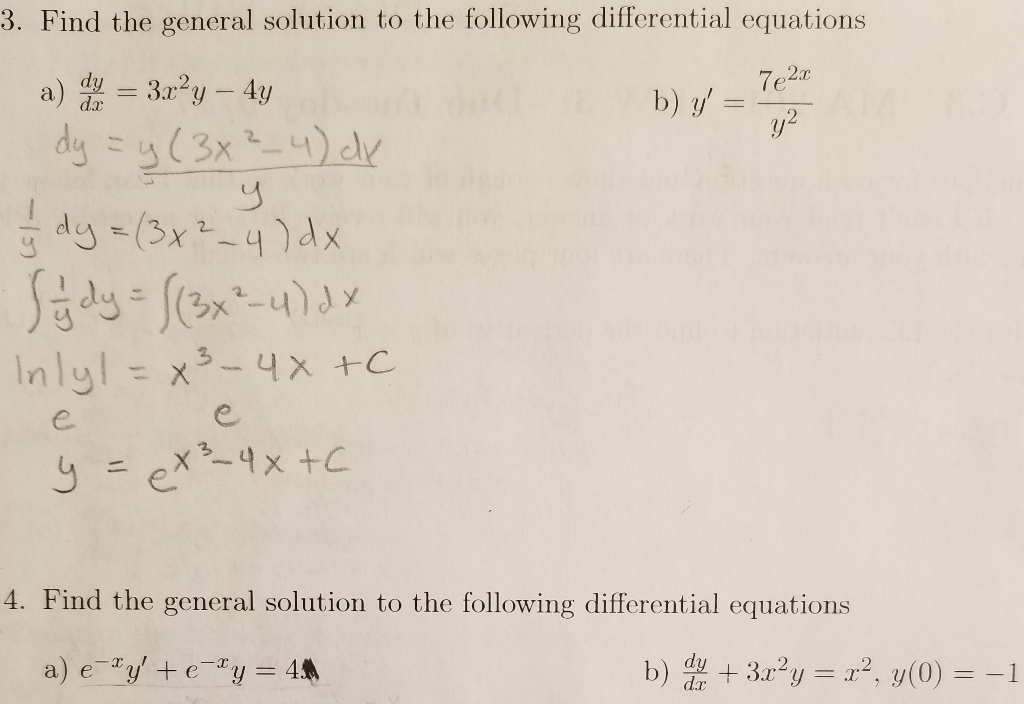



Find The General Solution To The Following Y Chegg Com
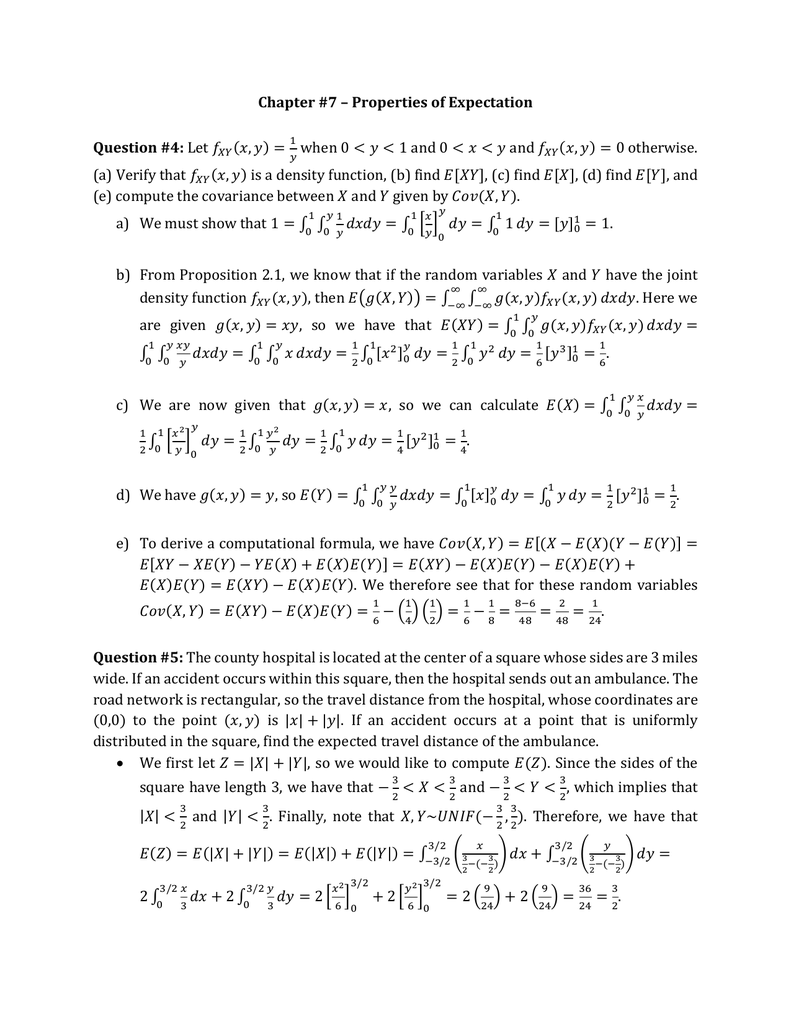



Chapter 7 Properties Of Expectation Question 4




If E X Y Xy Then Dy Dx Youtube



Find The Exact Coordinates Of The Centroid Where Y E X Y 0 X 0 X 3 Mathskey Com



If E X E Y E X Y Prove That Dy Dx E Y X 0 Sarthaks Econnect Largest Online Education Community



Solved 3 Use Implicit Differentiation To Find Dy Dx And Evaluate Dy Dx At The Point 1 1 15 P 2xy2 Exy X3 Section 3 4 The Price Demand Equa Course Hero



If X Y E X Y What Is Dy Dx Quora




If Xy Xe Y Ye X X 2 Find Dy Dx Maths Continuity And Differentiability Meritnation Com



1



0 件のコメント:
コメントを投稿